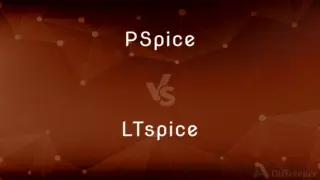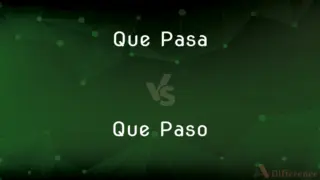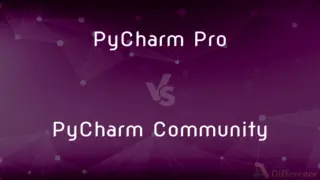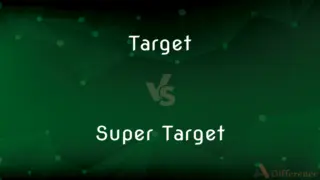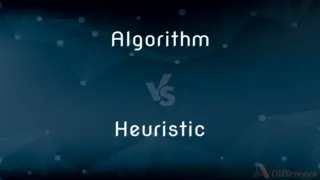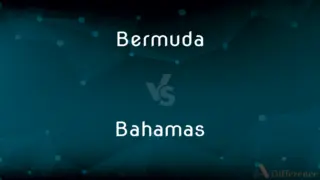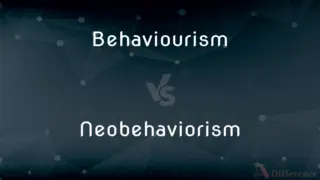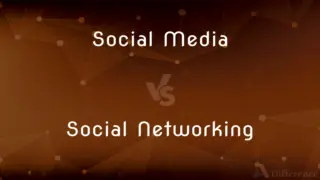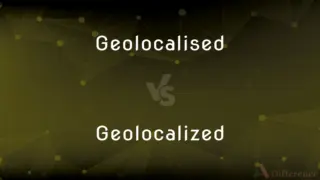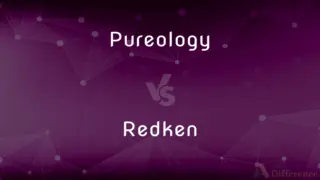Elf vs. Midget — What's the Difference?
By Fiza Rafique & Maham Liaqat — Updated on April 23, 2024
An elf is a mythical creature often depicted in folklore and modern fantasy, characterized by magical abilities and pointed ears, while a midget is an outdated and formerly used to describe a person of short stature due to a medical condition.

Difference Between Elf and Midget
Table of Contents
ADVERTISEMENT
Key Differences
Elves are fantastical beings from folklore and are commonly featured in literature and media, embodying characteristics like immortality, magical powers, and distinctively pointed ears. In contrast, the term "midget" was historically used in the medical community and entertainment industries to refer to individuals who are unusually short but proportionate, though it is now considered derogatory and has been replaced by "dwarf" or "person with dwarfism."
The concept of elves varies widely across cultures, with Nordic and Germanic mythologies portraying them as divine or semi-divine beings living in forests and mountains, often involved in guiding or misleading humans. On the other hand, the term "midget" was primarily a clinical descriptor before becoming associated with exploitation in circus and sideshow acts.
Elves play significant roles in various mythologies and modern fantasy genres, often symbolizing natural forces and wisdom. In contrast, using the term "midget" is now strongly discouraged due to its pejorative implications and the shift towards more respectful language when discussing individuals with short stature.
In modern fantasy, such as works by J.R.R. Tolkien, elves are depicted as high-minded, ethereal beings with a close connection to nature, superior senses, and a graceful appearance. Meanwhile, the term "midget" has been phased out in medical diagnoses and public discourse, reflecting a broader societal push towards sensitivity and respect in language concerning physical conditions.
The portrayal of elves in media and entertainment typically leans towards enchanting and heroic, contributing to popular and literary culture. However, the historical use of "midget" in entertainment often involved roles that mocked or sensationalized short stature for amusement, a practice now widely condemned for its insensitivity.
ADVERTISEMENT
Comparison Chart
Definition
Mythical being with magical powers and longevity
Outdated term for a very short, proportionate person
Origin
Folklore and mythology
Medical, later entertainment industry
Cultural Representation
Featured in myths, literature, and films
Historically used in pejorative context
Modern Usage
Common in fantasy genres
Considered derogatory and not used
Connotation
Magical, wise, often benevolent
Negative, demeaning
Compare with Definitions
Elf
Often depicted with pointed ears and a youthful appearance.
The elves in the film were guardians of the ancient forest.
Midget
Reflects a shift towards more respectful language.
Modern society emphasizes using respectful and sensitive terminology when discussing physical conditions.
Elf
Symbolic of wisdom and a deep connection to nature.
Elves are often portrayed as understanding the language of trees and animals.
Midget
Historically associated with circus sideshows.
Individuals labeled as midgets were often exploited in early 20th-century entertainment.
Elf
A mythical creature known for its magic and longevity.
The elf in the story could weave spells of invisibility.
Midget
An outdated and offensive term once used to describe a very short, proportionate person.
The term midget is no longer used in medical communities or respectful discourse.
Elf
Central to many fantasy stories today.
Elves play crucial roles in many popular fantasy series, wielding magic and wisdom.
Midget
Should be replaced with "dwarf" or "person with dwarfism".
It is more appropriate to say person with dwarfism when referring to someone with a form of short stature.
Elf
Featured prominently in Nordic and Germanic folklore.
In ancient tales, elves were seen as spirits of nature and protectors of the forest.
Midget
Involved in discussions about dignity and respect.
Advocacy groups work hard to eliminate the use of terms like midget in public discourse.
Elf
An elf (plural: elves) is a type of humanoid supernatural being in Germanic mythology and folklore (especially North Germanic mythology and folklore). In medieval Germanic-speaking cultures, elves generally seem to have been thought of as beings with magical powers and supernatural beauty, ambivalent towards everyday people and capable of either helping or hindering them.
Midget
Midget (from midge, a sand fly) is a term for a person of unusually short stature that is considered by some to be pejorative. While not a medical term, it has been applied to persons of unusually short stature, often with dwarfism, a medical condition with a number of causes including achondroplasia, and particularly proportionate dwarfism.
Elf
A mythical creature in human form but usually smaller, often considered mischievous.
Midget
(Offensive) An extremely small person who is otherwise normally proportioned.
Elf
A lively, mischievous child.
Midget
A small or miniature version of something.
Elf
A usually sprightly or mischievous or sometimes spiteful person.
Midget
A class of small objects, as a class of very small sailboats or racing cars.
Elf
(Norse mythology) A luminous spirit presiding over nature and fertility and dwelling in the world of Álfheim (Elfland). Compare angel, nymph, fairy.
Midget
Miniature; diminutive.
Elf
Any from a race of mythical, supernatural beings resembling but seen as distinct from human beings. They are usually delicate-featured and skilled in magic or spellcrafting; sometimes depicted as clashing with dwarves, especially in modern fantasy literature.
Midget
Belonging to a type or class much smaller than what is considered standard
A midget automobile.
Elf
(fantasy) Any of the magical, typically forest-guarding races bearing some similarities to the Norse álfar (through Tolkien's Eldar).
Midget
(originally) A little sandfly.
Although tiny and just two-winged, midgets can bite you till you itch all over your unprotected skin.
Elf
A very diminutive person; a dwarf.
Midget
(loosely) Any small swarming insect similar to the mosquito; a midge.
Elf
(South Africa) The bluefish (Pomatomus saltatrix).
Midget
Any short person.
Elf
To twist into elflocks (of hair); to mat.
Midget
(attributively) A small version of something; miniature.
The midget pony
Elf
An imaginary supernatural being, commonly a little sprite, much like a fairy; a mythological diminutive spirit, supposed to haunt hills and wild places, and generally represented as delighting in mischievous tricks.
Every elf, and fairy sprite,Hop as light as bird from brier.
Midget
A very diminutive person having normal proportions of the body parts; compare dwarf.
Elf
A very diminutive person; a dwarf.
Midget
A person who is abnormally small
Elf
To entangle mischievously, as an elf might do.
Elf all my hair in knots.
Midget
Very small;
Diminutive in stature
A lilliputian chest of drawers
Her petite figure
Tiny feet
The flyspeck nation of Bahrain moved toward democracy
Elf
(folklore) fairies that are somewhat mischievous
Elf
Below 3 kilohertz
Common Curiosities
How are elves portrayed in modern fantasy literature?
In modern fantasy literature, elves are typically portrayed as wise, long-lived, and in tune with natural and magical elements.
Can the portrayal of elves vary between different cultures?
Yes, the portrayal of elves varies significantly across different cultures, ranging from benevolent nature spirits to more complex characters in modern fantasy.
What are typical characteristics of elves in folklore?
In folklore, elves are often magical, ethereal beings associated with nature, wisdom, and sometimes mischief.
Why is the term "midget" considered offensive?
The term "midget" is considered offensive due to its historical usage that demeaned and exploited people with short stature, reducing them to objects of ridicule.
What is the preferred terminology for referring to someone with a significantly short stature?
The preferred terminology is "dwarf" or "person with dwarfism," based on medical and respectful language guidelines.
What impact did the medical community have on the term "midget"?
The medical community initially used "midget" as a clinical descriptor, which later carried negative connotations when used in entertainment and public discourse.
Is there any historical truth to the existence of elves?
Elves are purely mythological and do not have historical evidence of existence; they are born from cultural stories and literary inventions.
How has the representation of people with dwarfism in media changed over time?
Representation has shifted from exploitative and demeaning roles towards more dignified and accurate portrayals, reflecting broader societal changes in attitudes towards inclusivity and respect.
What are some examples of respectful language practices in describing physical differences?
Examples include using terms that individuals prefer or are widely accepted in medical and advocacy communities, avoiding outdated or pejorative terms.
How do elves differ from other mythical creatures?
Elves are distinguished by their close association with nature, often magical abilities, and moral complexity, which can differ from other mythical creatures who may not possess such attributes.
Share Your Discovery

Previous Comparison
Major vs. Mayor
Next Comparison
Total vs. GrossAuthor Spotlight
Written by
Fiza RafiqueFiza Rafique is a skilled content writer at AskDifference.com, where she meticulously refines and enhances written pieces. Drawing from her vast editorial expertise, Fiza ensures clarity, accuracy, and precision in every article. Passionate about language, she continually seeks to elevate the quality of content for readers worldwide.
Co-written by
Maham Liaqat


















